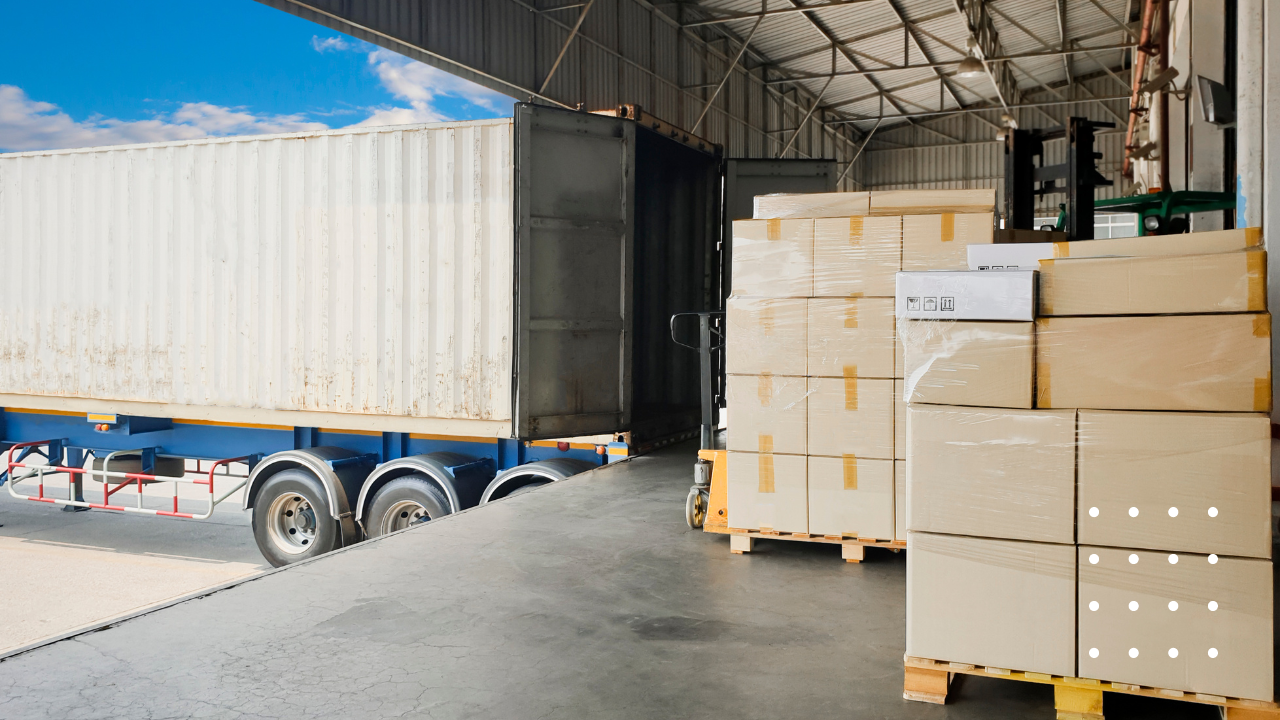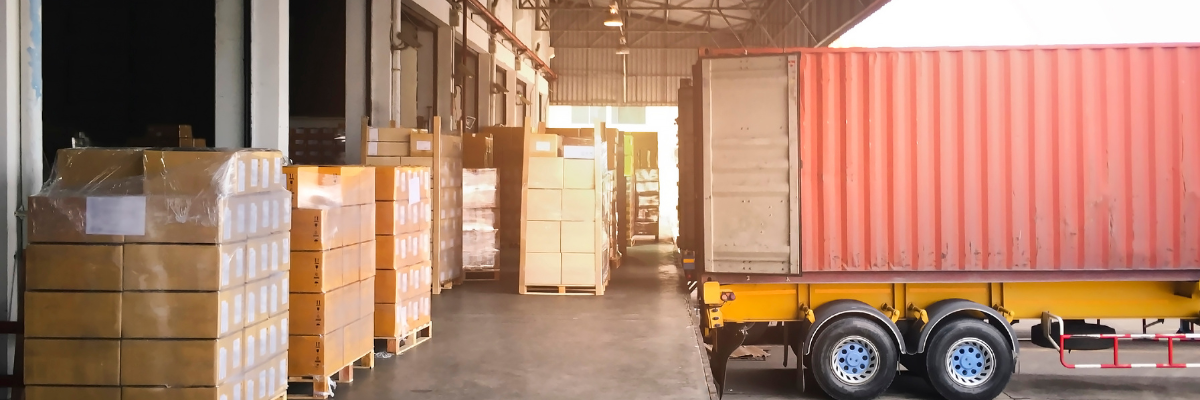International trade is a complex process. Importing and exporting goods involves customs-related...
6 Things You Need To Know Before Choosing A Freight Forwarder
When it comes to shipping, there’s nothing worse than a bad experience. Maintaining a good relationship with a freight forwarder can be a key to a smoother shipping experience, provided it’s done right. It's important to have a clear understanding of how freight forwarders work with carriers, shippers and customers. To help you understand the different ways freight forwarders can help, here are some best practices for working with a freight forwarder:

A freight forwarder would be somebody who manages the shipment of goods on the behalf of the client or shipper, which means they manage the import and export of cargo. Their role is to streamline transportation and ensure less error or delays occur. A freight forwarder usually coordinates between supplier (company who creates the shipment), carriers and other logistics professionals to move cargo to its destination.
Freight forwarders offer a variety of modes of transport, and through their contracts with a various carriers, they can negotiate the best transport rates. Most forwarders are usually also AEO’s (Authorized Economic Operators), which allows them a simplified customs clearance process, such as deferred duties/fees. When looking into working with a freight forwarder, you want to consider three important factors: the type of services you need, the country or location where they are, and your budget.
Freight Forwarder Vs. Freight Broker
Though similar in name, a freight forwarder and freight broker are different in terms of what they do. A freight broker is the middle man who connects carriers and shippers, but they do not actually touch or hold the cargo itself. A freight forwarder provides the same service but also stores the freight for the shipper and arranges the transport. They also ship with their own BOL and are responsible for cargo insurance, for example.
WHAT TO CONSIDER WHEN CHOOSING A FREIGHT FORWARDER
Experience
You will ideally want to look for a freight forwarder who has experience in the industry, rather than somebody who has just gotten into the business. Those with experience will know how to navigate various aspects of the job, including potentially port shutdowns or rerouting. It is essential to consider references or even Web reviews, so that you know the one you are working with is going to be professional and can get the job done. If there is no website or reviews anywhere, then you may want to consider exploring other options with more of an online presence.
Always ensure that the freight forwarder offers the type of services you are looking for or needing. It is especially important that they have connections within the country the goods are exporting from or importing to, in order to make the process run smoothly.
Type of Services
You will want to consider the different types of goods a freight forwarder handles, as an assessment of whether they fit your needs. Different types of goods and different types of shipping methods are important to consider when assessing your choices. Some forwarders can move multiple different types of products, while others specialize in only a specific type of goods. Keep in mind also what products you may intend to import or export in the future, and look into whether the forwarder can grow with your business in the long run.
You want a freight forwarder who offers multiple service contracts, giving you the choice regarding the movement of your cargo. This means that a forwarder who has contracts with multiple carriers can provide more of an option, so that you are not limited in your choices.
When it comes to shipments clearing customs, usually a customs broker is the entity responsible for preparing the customs clearance documents and clearing the goods (import process), while the forwarder arranges for the travel of the cargo from one place to another within a specified timeframe. Many freight forwarding companies may also provide customs brokerage services, so it is important to vet and research the company you choose to work with.
Communication
You will want a freight forwarder who is responsive and quick to address any questions that are presented. Do try to make sure that everything is planned out and that you are not adding last minute shipments, as this can complicate the process and leaves more room for error. You will want to define the roles or responsibilities in the process quite early on, so that there are no surprises further into the process. Poor communication can lead to increased operational costs, so be mindful of who you choose to do business with, as customer service is important.

Organization
There should ideally be a method or plan in place for how to get relevant documents to a freight forwarder and from them, in a timely manner. Technology now allows for streamlined communication, which saves the trouble of things getting lost or forgotten. Make sure to go over the process with the parties involved, as assuming the other party’s got full understanding can lead to delays and issues with a shipment.
Longevity
Ideally, you want to choose freight forwarders you can establish a working relationship with for the future. Looking into lower priced, per-shipment forwarders can lead to inconsistency and issues with your shipments. You want to stick with a freight forwarder you know and one which knows your shipments. You may want to consider adding a specific freight forwarder as a member of the logistics team within your business. These types of working relationships can lead to better volume rate negotiations and speedier shipping times.
Safety
Shipping internationally is quite risky, especially if the products are higher in value or more fragile. You will ideally want to work with a freight forwarder that has solutions to fit any potential risks cargo may face. For one, you may want to consider looking into whether a forwarder offers cargo insurance, and how they handle any liabilities which may occur.
Some questions to consider asking a freight forwarder before signing on with them include:
- "Are you licensed?"
- "What is the amount I'm expected to pay once the goods arrive at their destination?"
- "What does your rate include? What am I paying for?"
- "Am I going to be able to track my shipment? How?"
- "Who is insuring my goods?"
- "Do you manage customs clearance?"
- "How vast is your network?"
- "Do you offer the services which can meet the need of my shipment?"
- "How will you be managing or handling my shipment?"
- "Who can I call if I have questions or issues arise? Who is the point of contact?"
If you’re working with a freight forwarder, don’t hesitate to ask questions and share feedback. It's important to have a clear understanding of the freight forwarder's role in your logistics, and to also inform them of the reasons you are using them. A freight forwarder can do a better job once they understand your business needs. If you are just starting to ship goods or switching between vendors, the details can make a difference in the process your forwarder applies.
Your freight forwarder is your partner and a key component to successfully managing your freight process. Make sure they are able to answer any questions and that they have all the tools they need to make your business move smoothly.

.png?height=200&name=Ivory%20Elegant%20Summer%20Fashion%20Blog%20Banner%20(11).png)
.jpg?height=200&name=White%20Minimalist%20Aesthetic%20Magazine%20Photography%20Portfolio%20Presentation%20169%20(5).jpg)
.png?height=200&name=Pink%20Minimalist%20World%20Breastfeeding%20Week%20Banner%20(2).png)